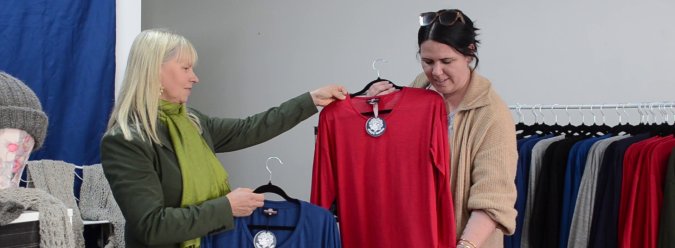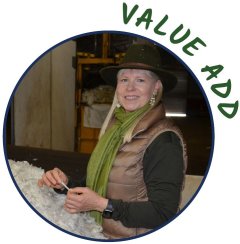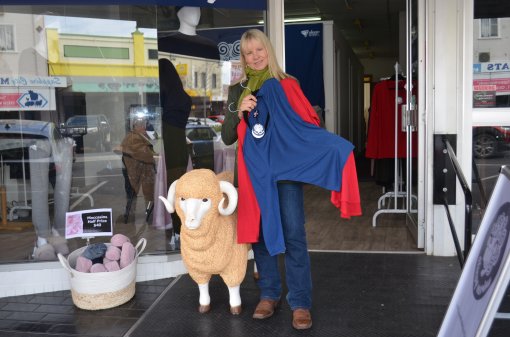-
Featured Items
-
Featured Resources
 Funding & Grants
Don't miss out on funding opportunities. Stay informed with our up to date online listings and email notifications.
Read More
Funding & Grants
Don't miss out on funding opportunities. Stay informed with our up to date online listings and email notifications.
Read More
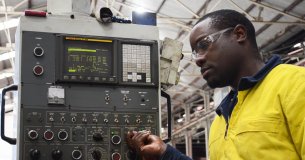 Skilled Migration
Our services help both applicants and employers, to learn more, develop plans, submit applications, and settle in.
Read More
Skilled Migration
Our services help both applicants and employers, to learn more, develop plans, submit applications, and settle in.
Read More
 Research and Analysis
Good research and analysis makes the case. How can our resources and services help your project or application?
Read More
Research and Analysis
Good research and analysis makes the case. How can our resources and services help your project or application?
Read More
 Information & Data Resources
With resources like REMPLAN, Regional Knowledge Base, and decades of data, discover how we can help your project.
Read More
Information & Data Resources
With resources like REMPLAN, Regional Knowledge Base, and decades of data, discover how we can help your project.
Read More
-
Stay InformedSubscribe to one or more of our regular email subscriptions, to be kept up to date on news and funding opportunities for the region
-
-
Our Region
- Our Region
- Regional Plan
- Regional Data
- Current Regional Issues
- Population Migration Analysis for 2016-21
- Job Vacancies Continue at All-Time High
- National Debt - What it Means for Our Economy?
- The True Value of Home Solar
- The Economic Impacts of Local Government Amalgamations
- State of the Regions Report 2014-15
- Antifragility - A different take on regional economic development
- Biohubs - Collaborative Waste Management
- Attracting New Residents
- Socio-Economic Impacts of the Murray Darling Basin Plan
- Murray Darling Basin Water Recovery
- Growing Businesses
- The Northern Inland Economy
- Geographical Overview
- Major Industry Sections
- Our Services
- Grants and Funding
-
Skilled Migration
- Skilled Migration
- Skilled Employer Sponsored Regional Visa
- Skilled Work Regional Visa (subclass 491)
- Temporary Seasonal Workers
- Designated Area Migration Agreement (DAMA)
- Helpful Information for Visa Holders
- Information for Employers
- Case Studies
- Payment Details
- Advice & Further Information
- Contact Details
- News & Events
-
Our Projects
- Our Projects
- Current Projects
- The Welcome Experience
- Come On Inland
- Wool Works - Wool Training Schools
- Skilled Migration
- Metal Works - Welding and Fabrication Schools
- Stories of Resilience
- Alt Brothers Beekeeping - Glen Innes
- Carelle's Toy Store - Glen Innes
- Greenhill Orchards - Arding
- Gwydir Meats - Warialda
- Kaputar Motors - Narrabri
- Moonbi General Store - Moonbi
- Sandstock - Tingha
- Sherelle Fashions - Tenterfield
- Sleepy Merino - Inverell
- Tenterfield Chamber of Toursim, Industry and Business - Tenterfeild
- The Welders Dog - Armidale
- Walcha Veterinary Supplies - Walcha
- AGCAP - Agribusiness Careers & Professions
- Northern Inland Regional Investment Profile
- Past Projects
- Digital Economy Strategy
- Business Growth Project
- Go Digital
- How to Start an Online Business
- Create Your Website Using Squarespace
- How to Edit Your Squarespace Site - Part 1
- How to Edit Your Squarespace Site Part 2
- Add a Shop to Your Squarespace Site
- Start a Blog and Find out What Customers are Searching
- 14 Tips For a Better Blog Post
- Which Social Media Platforms are Best for Your Business
- How to Use Facebook Effectively For Your Business – Part 1
- How to Use Facebook Effectively For Your Business – Part 2
- Instagram Tips for Business
- Catching Up, More Instagram & Dealing with Haters
- Getting Started with Twitter for Business
- Social Media Scheduling Tools
- How to Start an Etsy Shop – Part 1 – Research
- How to Start an Etsy Shop – Part 2 – Signup
- Online Security for Your Business
- Product Photography and Website Images: Your Guide
- 5 Tips to Improve your Productivity in your Business
- Best Online Business Resources
- How to Improve Your Communication Skills and Win More Clients
- NBN Coordinator
- Putting Power Back in the Regions
- Road Freight Study
- Town Audit Benchmarks
- Food and Wine
- Youth Survey
- Digital TV Switchover Assistance
- Northern Inland Transport Guide
- Live.Train.Work
- Northern Inland Innovation Awards
- Northern Inland Innovation Awards - 2017
- Northern Inland Innovation Awards - 2016
- Northern Inland Innovation Awards - 2015
- Northern Inland Innovation Awards - 2014
- Northern Inland Innovation Awards - 2013
- Northern Inland Innovation Awards - 2012
- Norther Inland Innovation Awards - 2011
- Prime Super Northern Inland Innovation Awards - 2010
- Prime Super Northern Inland Innovation Awards - 2009
- Northern Inland Innovation Awards - 2007
- Northern Lights Project
- NBN Smart Home
- Murray Darling Basin
- Moree Plains Business Workshops
- Namoi Investment Prospectus
- Industrial Land
- Bioenergy and Local Electricity Retailing
- Northern Inland Business Energy Assessment
- Skills for the Future
- Impacts of COVID-19 on Businesses
- Past Projects of NIRDB
- Aboriginal Employment and Enterprise in the Gunnedah Region
- Art as an Industry
- Aviation Survey
- Farm Forestry - Northern Inland Forestry Investment Group
- New England North West Film Strategy
- Northern Inland Excellence in Business Awards
- Food and Wine 2003 - 2008
- Prime Super Northern Inland Innovation Awards 2009
- Regional Business Networking Program
- Regional Leadership Course 2008
- Viticulture Strategy 2002-2003
- About Us
- Contact Us
- Other Resources
- Privacy and Legal
- Search
- Our ProjectsOur Projects
- Current ProjectsCurrent Projects
- Stories of ResilienceStories of Resilience
- Sleepy Merino - InverellSleepy Merino -…
Stories of Resilience - Sleepy Merino
Inverell
For woolgrower, Julie Bird, hard times on the land meant she needed to improve her business. She began with sourcing more resilient sheep, then diversified and value-added, creating a merino wool brand of sleepwear and casual garments. After three years, her Inverell store is going strong and her online store is exporting to the world. The result has been improved cashflow for the family business, and enterprise which is more satisfying and sustainable now than before the dark times hit.
Enduring the Dark Times
“About five years ago, my parents, my brother and I moved to the Inverell region. We stocked a new property, which needed a lot of work. A year later, the drought hit. It wasn’t a great start, so we destocked again. Times were pretty tough because we hadn’t had that income through at that stage but times were pretty tough for everyone in the whole region,” Ms Bird said.
"Times were pretty tough because
we hadn't had that income through at that stage
but times were pretty tough for everyone in the region"
“It was relentless work, feeding stock. We were lucky that we had some feed on the place. We still had to supplement and it is a large property, with large distances involved in feeding stock. We were very lucky that we still had water in our major creeks.”
“It was pretty tough and I know we all got pretty stressed at times. They were dark times for everyone.”
Rebuilding for the Future
“The farm had not generated any income, then we had to restock after the drought and that process in ongoing and at great cost, with livestock being very expensive at the moment.”
Disaster recovery was not an overnight process and key for Ms Bird was not just stoically running the business but making the time to work on the business. “It certainly did make us look outside the square with how we run our business and what we can do better.”
“People tend to think things are good for farmers now because the stock are making a lot of money but we’re still restocking with those prices so high and a lot of us are still paying off feed bills from the drought time. Things are looking pretty good now.
“I did a lot of thinking about how we can have better, tougher livestock that suit our variable climate. We looked at improving our sheep genetics, for animals that will feed on our tough native vegetation in dry times and do not require mulesing. They’re a non-wrinkly merino, which is better for animal welfare. We have the meat market, as well as the wool. We have been forced to improve our sheep business.”
Seizing an Opportunity to Value-Add
“The other thing I did was to form a value-adding business selling merino wool products, such as merino pyjamas and tees called ‘Sleepy Merino’. It is really getting going now but it took a fair bit to get it started. I learnt a lot about designing garments and about retailing. I’ve now got a shop in Inverell as well as the online business.
"When things were tough, we were able to be creative
and think about new ways of doing things. It has been really
good to diversify our income moving forward.
It has given us more regular income"
“It was great for us to be thinking about something other than the negatives of the livestock side of things. When things were tough, we were able to be creative and think about new ways of doing things. It has been really good to diversify our income moving forward. It has given us a more regular income. Your income is irregular, being a farmer, with your wool cheque once a year and your lambs marketed once a year.”
“The drought really made us think about how to do business better. With the livestock business, bringing ideas about better pastures that are more resistant to tough environments and conditions, as well as better sheep that are able to resist climate change. It also forced us to innovate new ways to diversify our income through the merino wool retailing business.”
“I’m feeling really positive about our Sleepy Merino business. We’re selling all over the world, particularly to the United States, Canada, Finland, anywhere cold. The especially encouraging thing is the number of times people are ordering our merino wool garments again and again, for family and friends. The return customer base is over 45 percent after our first three years. I get the most positive calls and emails from customers, which makes you feel really good about what you’re doing.”
Julie hopes her business resilience, development and diversification story will educate and inspire others.
“Be brave. Being courageous really helps you to think outside the square to do things differently and better. I thought that I had things swimming along quite nicely and that was not forcing me to think outside the square. The tough times really made me better and my business better.”
Sleepy Merino garments are now being manufactured in the local region. The Organic Tshirt is a small clothing manufacturer that made a tree-change to Glen Innes in 2022. Julie is all the more proud of her enterprise and what it represents.
Watch Julie's Story
Related Pages
- Stories of Resilience
- Alt Brothers Beekeeping - Glen Innes
- Carelle's Toy Store - Glen Innes
- Greenhill Orchards - Arding
- Gwydir Meats - Warialda
- Kaputar Motors - Narrabri
- Moonbi General Store - Moonbi
- Sandstock - Tingha
- Sherelle Fashions - Tenterfield
- Sleepy Merino - Inverell
- Tenterfield Chamber of Toursim, Industry and Business - Tenterfeild
- The Welders Dog - Armidale
- Walcha Veterinary Supplies - Walcha







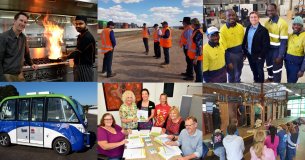 Latest News
Latest News
